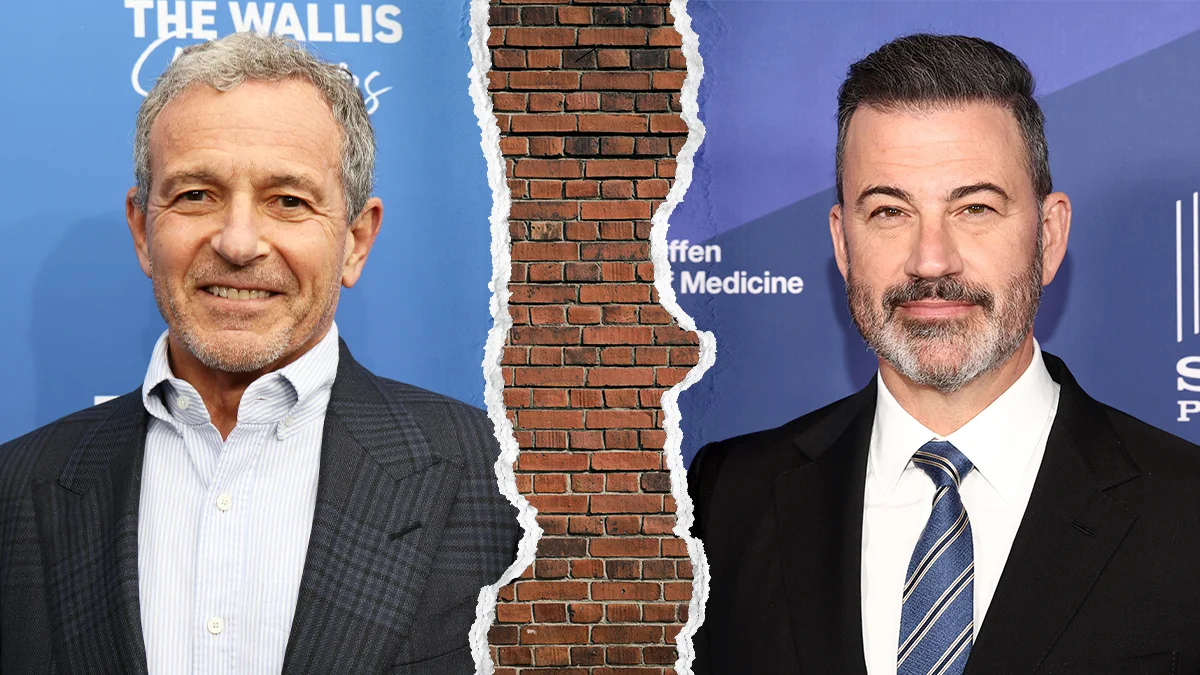Bob Iger Faced Down Affiliate Revolts Before. The Game Has Changed Under Trump | Analysis
By Brian Lowry
Copyright thewrap

In the 1990s, ABC faced a revolt from conservative affiliates, and a young executive named Bob Iger stood up to them — and won.
What a difference 30 years, wholesale media consolidation and threats from a thin-skinned president with no regard for the First Amendment make.
As the president of ABC Entertainment and subsequently the ABC Broadcast Group in the ’90s, Iger scheduled “NYPD Blue,” whose boundary-pushing content prompted a revolt by 57 ABC stations that initially refused to air it; and “Ellen,” which generated controversy over star Ellen DeGeneres coming out as a lesbian, both personally and as part of the show on its famous “The Puppy Episode.” One station, in Alabama, balked at airing that.
Now the head of Walt Disney Co., which he has guided for more than 20 years, Iger is dealing with another crisis while playing a much weaker hand. The public relations disaster began Wednesday, when ABC “indefinitely” preempted “Jimmy Kimmel Live!” after a pressure campaign launched by the Trump administration that prompted two major affiliate owners, Nexstar and Sinclair, to announce they wouldn’t air the late night program.
Having already blinked, figuring out how ABC might bring Kimmel back falls squarely on Disney’s executive suite, which is being understandably buffeted by criticism from all sides, from politicians and pundits to Kimmel’s fellow stand-up comedians, along with the Writers Guild of America and other Hollywood groups.
For Iger, 74, this challenge has emerged at the twilight of his career and in the process of choosing a successor, although the tumult surrounding Disney might make one wonder why his top lieutenants would be lining up for such a thankless job, the perks and pay notwithstanding.
Notably, Disney Entertainment co-chair Dana Walden, who oversees ABC, is one of Iger’s potential replacements, a decision the company has stated will come in early 2026.
Disney didn’t respond to a request for comment.
While running a studio has never been easy, the degree of difficulty has been ratcheted up during Trump’s second term, thanks in part to his relentless attacks on media and the willingness of his handpicked Federal Communications Commission chairman, Brendan Carr, to do his bidding.
The regulatory process governing broadcast television has created additional pressure points.
Specifically, TV station owner Nexstar announced a $6.2 billion merger with another major station group, Tegna, in August, potentially creating a giant that would control 265 stations reaching 132 of the nation’s 210 TV markets. But approving such a deal would require that the FCC relax its existing cap on the percentage of the country a single owner can reach.
Those regulatory objectives have made both Nexstar and Sinclair especially vulnerable to the threats that Carr has directed at broadcasters, which critics see as little more than an attempt to silence voices — including comedians — that speak ill of Trump.
FCC commissioner Anna M. Gomez summed up how antithetical that is to both First Amendment values and the commission’s mandate, stating, “This FCC does not have the authority, the ability or the constitutional right to police content or punish broadcasters for speech the government dislikes.”
Then again, the professed outrage over Kimmel’s monologue regarding the killer of activist Charlie Kirk appears to many like a transparent means of achieving those ends. Trump himself has seemingly given that game away on multiple occasions, including his statements to reporters Thursday, in which he complained again about how unfair the late-night hosts have been to him, while confusing where broadcasting licenses reside.
As for the FCC guidelines, and the regulatory changes the station groups seek, Jessica Gonzalez, co-CEO of the free-speech advocacy group Free Press, posted on Bluesky that the fact that the media system has “become so concentrated that it cannot stand up to authoritarianism is a policy failure.”
Media companies, including Disney, have thus far shown themselves willing to settle lawsuits filed by Trump in the vain hope it would make such concerns go away — a posture that looks increasingly naive with each new concession.
Disney already agreed to pay $15 million in December after Trump brought a lawsuit against ABC News regarding the language that anchor George Stephanopoulos used in describing the defamation verdict won against Trump by E. Jean Carroll.
Yet if corporate leaders like Iger hoped that payoffs would mollify Trump, or at least keep him at bay, they have rather appeared to embolden him. Just this week, Trump referenced the ABC settlement as he raged at ABC News correspondent Jonathan Karl, indicating that he might “go after” him as well. (As a footnote it’s worth noting Iger’s wife, Willow Bay, is an ABC News alum and the dean of USC’s Annenberg School for Communication and Journalism.)
Speaking at The Atlantic Festival Thursday, late night icon David Letterman summed up, more than anything, Trump’s underlying pettiness, saying, “The institution of the president of the United States ought to be bigger than a guy doing a talk show.”
For Iger, who started his career as a TV weatherman at an ABC affiliate in Ithaca, New York, and worked at multiple ABC divisions as he was groomed for the network’s top job, this latest and perhaps last major controversy reflects how dramatically the world has evolved.
“NYPD Blue” made its debut in 1993, overcoming the distribution handicap caused by those rogue affiliates to become a major ratings hit, win over advertisers, win Emmys and run 11 seasons.
With Capital Cities’ support, Iger endured the campaign mounted against the show by the Christian conservative group the American Family Association, and was rewarded with a major hit. ABC did the same with “Ellen,” whose coming-out episode drew more than 40 million viewers, although ratings faded thereafter and the show was canceled.
Much has changed since then. ABC is now part of Disney, a much bigger company with a vast assortment of business and regulatory interests to consider, fueling the common complaint that “corporate media” has revealed its weakness by knuckling under to Trump’s mob-like tactics. Those vulnerabilities also include the possibility of people expressing their displeasure over the Kimmel decision by skipping trips to Disney World and canceling Disney+ subscriptions, or creative talent choosing to take their services elsewhere.
Disney, notably, is exposed on that level because the company has grown vastly larger under Iger, who spearheaded the acquisitions of Pixar, Marvel and Lucasfilm, as well as the deal that brought Fox’s entertainment assets into Mickey Mouse’s clubhouse.
In his memoir, “NYPD Blue” co-creator, the late Steven Bochco, recalled that Iger had to go to the mat to convince his boss Dan Burke, the CEO of ABC’s then-parent Capital Cities, to take such a major gamble, quoting Burke as telling Iger, “You’d better be right. Because if you’re wrong, my skirts won’t be big enough for you to hide behind.”
These days, Iger doesn’t have any skirts to hide behind except his own. But the choices Disney makes now could create lingering ripples for his successor, in addition to potentially adding asterisks to Iger’s storied legacy.



